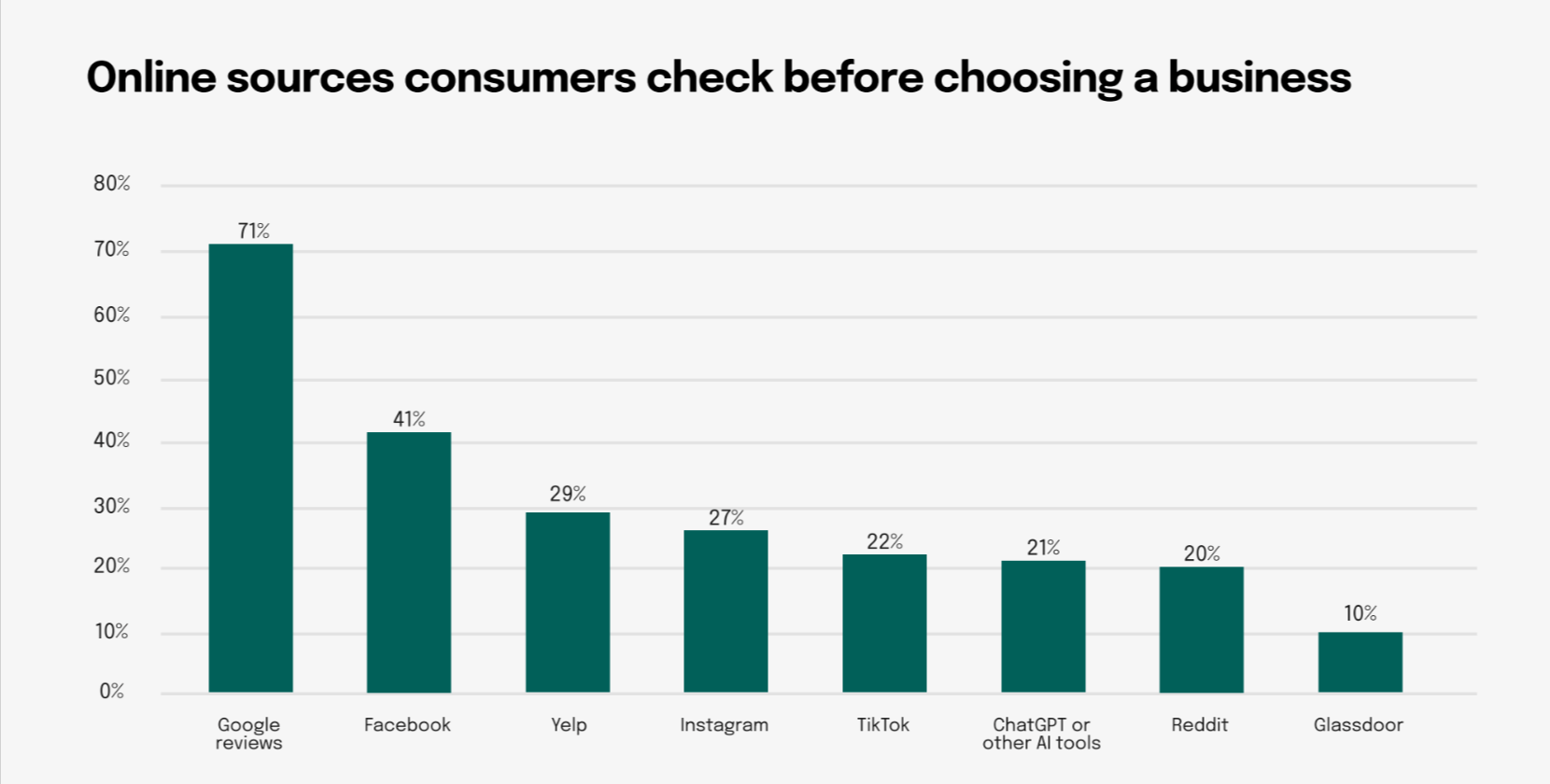The Continuing Importance of Online Reputation Management
Reputation has always mattered, but the rules have changed. First impressions are now made online, often before a customer even visits a website. Reviews and AI-driven insights increasingly guide decisions, reshaping the trust equation for businesses of every size.
A new Sogolytics nationwide survey of 1,198 adults shows that checking reputation has become standard practice. More than half of consumers report often or always reviewing online information before trying a new business, while only a small share never check at all. Generational differences are clear, with younger adults leading the shift toward new platforms and tools.
[Click here to download full report]
Young Americans Depend on ChatGPT and TikTok for Consumer Decisions
Google reviews remain the most trusted source, but alternative channels are rising quickly. One in five consumers now use AI tools such as ChatGPT to evaluate businesses, and younger adults are more likely to report that these tools strongly influence their choices. TikTok is also emerging as a reputation checkpoint, especially for those in their late teens and early twenties who value authentic, visual experiences.
Platforms That Shape First Impressions

Source: Sogolytics, Online Brand Reputation Survey 2025
Yet the decision is not only about where information is found but also about what signals are considered credible. Many consumers place higher importance on the freshness and detail of reviews rather than sheer volume or star ratings. Outdated or vague comments carry less weight, while timely and specific feedback creates stronger trust.
Authenticity and Transparency Have Outsized Impact
Reputation management now demands a proactive strategy. Brands must encourage authentic reviews, respond with transparency, and maintain a consistent digital footprint across every platform.
AI is rapidly becoming a filter in consumer decision-making, which raises the stakes for accuracy and visibility. Companies that manage reputation actively will strengthen trust and remain competitive, while those that ignore it risk being overlooked entirely.














